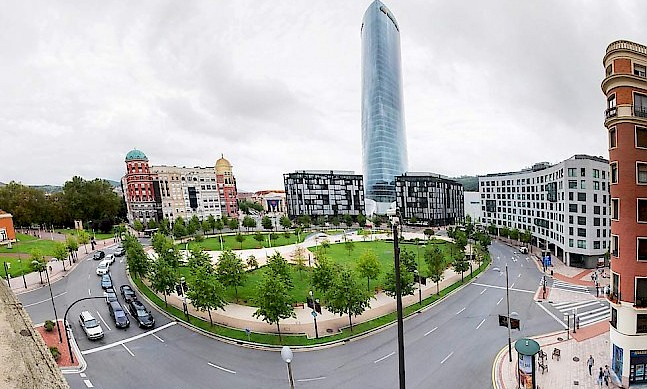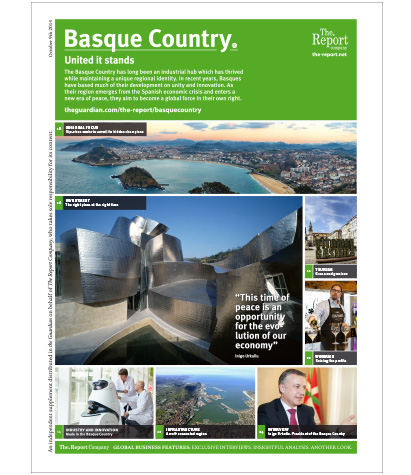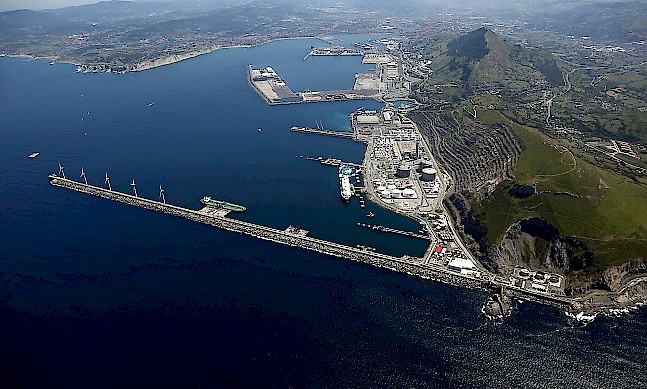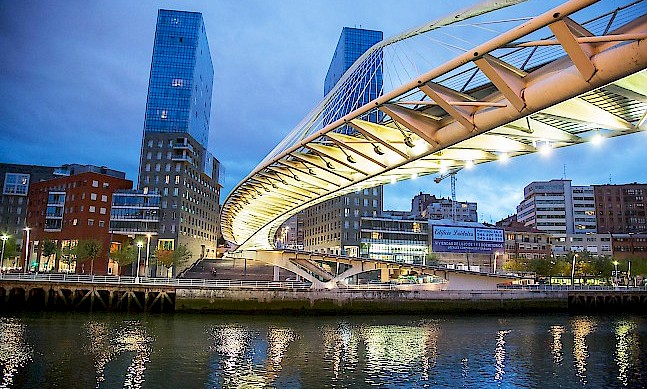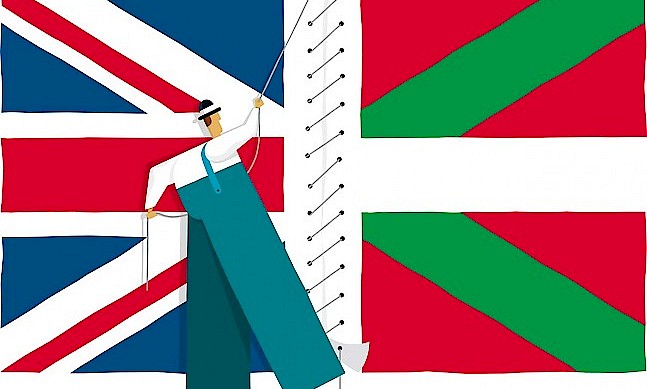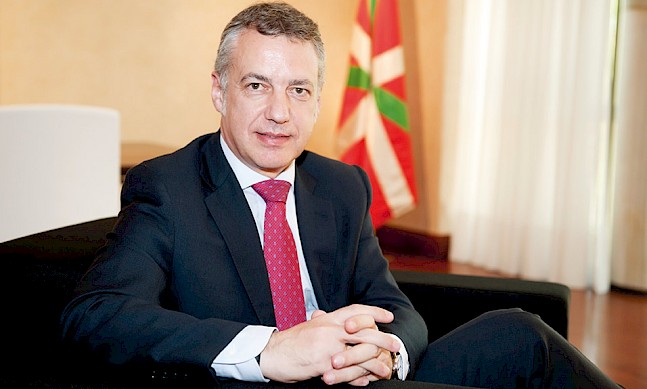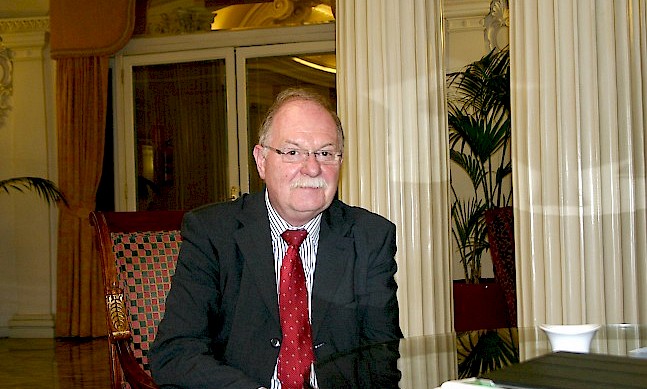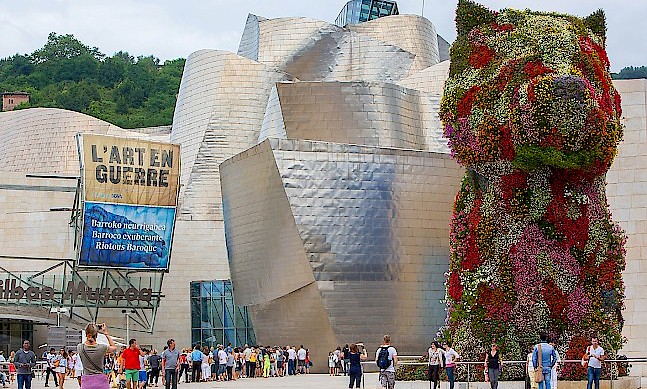Andoni Aldekoa talks to The Report Company about Bilbao’s plans for internationalisation, the future of the city, and how the Basque brand is important for the future of the city’s economy.
The Report Company: What makes cities so central to economic development?
Andoni Aldekoa: There are two reasons. The first is that a new world is being born; the world of cities. In 2013, around 52 percent of the world's population lived in cities. In 2018 that number will be 60 percent, and within 25 years 80 percent of the world's population will live in cities.
Cities need to be seen as a huge economic opportunity. What's happening now is a huge movement around the world to try and predict what the economies of cities will be like. Some studies claim that in the next 20-30 years, 22 percent of global GDP will be produced in cities. There is a lot of competition, both from cities to position themselves as leaders, and from companies trying to keep up with what will be their future.
Over the last 25 years, Bilbao has become a success story with regard to regeneration. We've shown that cities can reinvent and reposition themselves.
I also think there's a third important factor at play here too; the fact that there are various leagues of cities. There are megacities, which have their own habits, ways of thinking, and their own dynamic. New York, London, Paris, Madrid, and Shanghai are in this category. The second category is mid-sized cities that are very interesting when you analyse them. The UK has a pool of eight or nine medium-sized cities in this category that are getting involved in the process of building themselves up. They're trying to position themselves with hope for a better future. They're also trying to learn from other cities too.
“Over the last 25 years, Bilbao has become a success story with regard to regeneration. We've shown that cities can reinvent and reposition themselves.”Tweet This
TRC: What point is the Bilbao Next plan at right now?
AA: In 2010, two things happened. The first happened when we won medals in Shanghai, the Lee Kuan Yew. This means we are known around the world.
The second moment in 2010 was when we found ourselves swept up in the crisis, and all the key factors from the past ceased to be important, and Bilbao had to rethink and see how it was going to grow in the future. The Next concept came out of the necessity to move the city forwards, and the need to reinvent how we grow.
The Next concept is obvious: "new economy, plus territory". What we mean is that Bilbao's future is new economy. The last 25 years have been all about policies related to urban regeneration. The next 25 years will be based on the economy. The best support cities have to generate an economy is their own land. That means we still need to regenerate land, but with the goal of building a new economy. All land-related policies that we have implemented over the last 25 years have been aimed at social construction. Now what we need to do is build a city with opportunities for business.
TRC: Bilbao is constantly changing, as is what it produces. What are the main sectors that define Bilbao's economy?
AA: Approximately 20 percent is trade, tourism, and everything that goes along with that. Another 20 percent is what we call non-market services, which means health, education and social services, provided by the council. Then we have industry and the livestock sector. This means that 35 percent of our economy is based on non-consumption services. This is the paradigm of the city: advanced services for industry.
TRC: What direction is Bilbao taking?
AA: If land use continues to bring in around 25 percent of GDP, the city will have to become a hub providing services, for two reasons. The first is because the industry of the future will need ever more services. It will stick ever more to the core of its activity and will buy more added value from the services sector. That is clear. The second reason is that if we don't offer these services, another city will. Madrid will offer the services or somewhere else will. The third reason is that we need to create an economy with value. Therefore, the future of the city rests in offering advanced services to industry.
Right now, this city offers many more technical services than the European average. The university is specialising in training people to work in those sectors needed by industry. Currently, we have an average of 24 percent of young people who are in training for technical careers. The European average is 14 percent. This means that we are better able to provide technical resources or technical-human resources.
TRC: Within the Basque Country, what priorities should take precedence in order to maintain sustainable growth?
AA: Internationalisation remains this region's objective; internationalisation of industry as well as the services we offer. Idom has gone from being 20 percent internationalised to 80 percent. The same goes for SENER. It's an area that is really important for us, advanced services for industry and generating value.
The university will play a fundamental role for this region as it produces highly skilled workers. It attracts talent and is part of the innovation for the future. As well as this, industry has two important pillars to rest on: Technical and human capabilities.
“I believe that we have to be innovative not only to keep being competitive in the areas we are present in already, such as energy, components, machinery, machine tools etc. but also to grow new sectors and new abilities for the economy of tomorrow.”Tweet This
TRC: What is Bilbao doing within the framework of Europe 2020?
AA: Europe 2020 can be divided into three areas. Europe 2020, for the first time, decrees that five percent of the social fund should go to cities; 2.5 percent through the government, and 2.5 percent directly to the cities themselves. This means that Europe has realised that cities are a part of its future. We need to decide if Bilbao is going to be a player in this world or remain on the bench.
In order to compete we are going to have to work hard to generate a lot more value for each of the hours we work. We are going to have to be much more flexible and a lot more open.
TRC: How are you encouraging innovation?
AA: First of all, I think that people can see that innovation is a technical process and a state of mind. If we don't see innovation as a state of mind, we are bound to fail. Many people call innovation continuous improvement, which means doing the same thing more efficiently. Innovation means introducing new products, new habits in the market and converting them into wealth. But it is a state of mind above all. I think it's fundamental for survival.
I believe that we have to be innovative not only to keep being competitive in the areas we are present in already, such as energy, components, machinery, machine tools etc. but also to grow new sectors and new abilities for the economy of tomorrow. What is also true is that innovation faces a challenge in efficiency. Indices of intelligent land use basically have three components. One of them is focusing on knowledge and technology, the second component is generating patents, and the third is investment funds linked to the sectors that need to grow. We need to be more efficient in how we innovate. We need to generate more patents and we have to make the investment present in innovation turn into a finished product more frequently.
TRC: How do you get the message out about what Bilbao has to offer?
AA: This city needs to unite its outlying areas to be internationally competitive. The Bilbao Biscay strategy is a city-land strategy. Both the city and its outlying areas have the same objective and are united in their vision for the future. The second is Be Basque. If we wish to be more competitive we need to be aggressive, we need to integrate all the surrounding areas into this vision. In order to integrate all these things, you need to have empathy with these areas, and that's what we're trying to create.
TRC: How do you find a balance between competing with San Sebastian and Vitoria, and collaborating with them?
AA: We have to compete with San Sebastian and Vitoria because that's our day to day. However, we have to collaborate to add the international dimension. It's obvious that we are competing but we have to get one thing straight. What's at stake is not Bilbao, Biscay or Vitoria. What's at stake is that we're trying to reposition an entire region amongst ourselves. We have to be able to orient ourselves towards one area: the Atlantic corridor. Either we create partnerships with everyone along the Atlantic corridor or we won't be able to compete at an international level.
TRC: How is Bilbao positioning itself?
AA: It's fundamental for Bilbao to position itself internationally with regard to its economy, values, quality of life and tourism. We need to be a global brand.
We are competing to have an international presence in four areas. The first is culture. Having the Guggenheim here means we have to bet on culture. It's going to be one of the things that makes Europe stand out and be internationally competitive. The second area is transforming cities, urban solutions. The third component is a competitive economy, and the fourth is good government. This will give us our global image.
The fifth component is how we are showing that areas can generate more value for their products. What we need to do is really internationalise the city to help our businesses. We need a "made in" so they can add value and are able to trade more. Because after governments, and in our case cities or mayors, these brands are an element in generating trust for the clients of these businesses. I don't think you can make a distinction between internationalising a city and internationalising its businesses.
TRC: Bilbao has very close historical links with the UK. How do you see this relationship developing?
AA: London is a city that is still very important in the world of finance and all its related services. It is using its neighbourhoods to generate a new creative economy, and is also learning how to come up with integrated flexible policies to deal with its ever growing population. We should take inspiration from London. We need to collaborate with British cities undergoing the same process as us; industrialisation, economy, and regeneration. Then we should create a pole of movement.
TRC: What are the key pillars of Bilbao’s approach to internationalisation?
AA: One, to increase its sphere of influence; be the centre of a far more powerful area. Two, connectivity. Only areas that can guarantee connectivity with the outside world are going to be able to compete. So connectivity is key. Third, knowledge, university, innovation. I think that this is another fundamental aspect. Four, intelligent specialisation. We need to generate economic clusters for cities, that are necessary for the future. Fifth, a change in attitude and values. We need to be non-conformist and embrace the future with the spirit of openness. Another issue is utilising land usage policies, spaces of opportunity, to keep growing. That's about where we are right now.


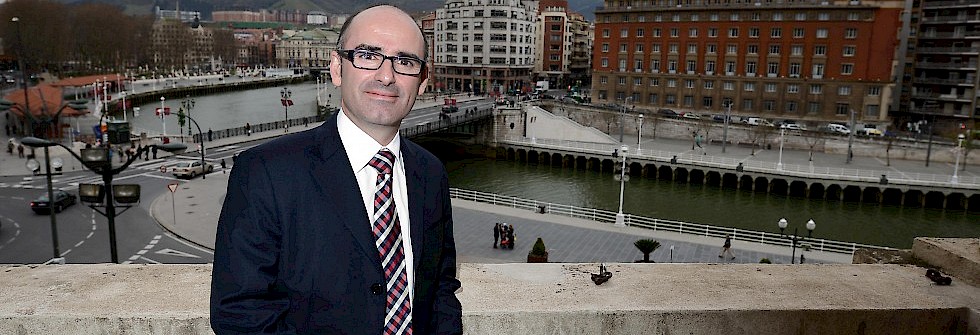 Photo: The Mayor of Bilbao's office
Photo: The Mayor of Bilbao's office
